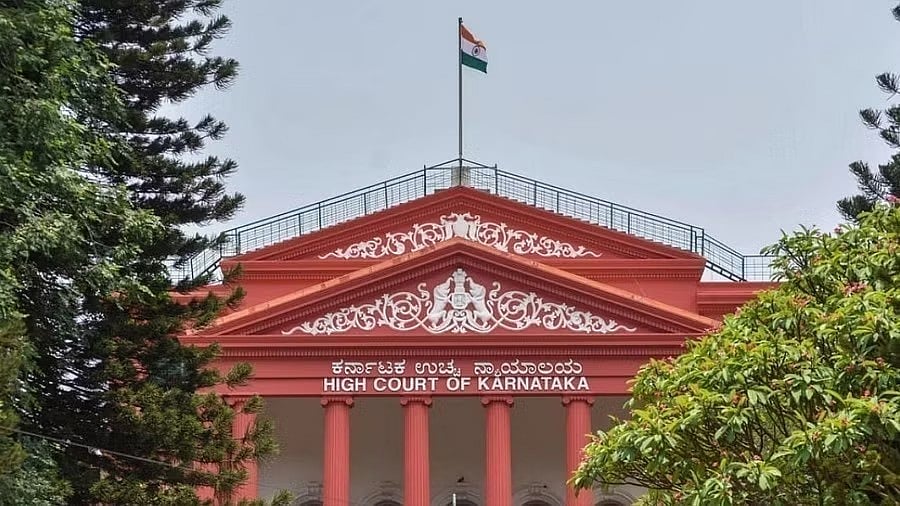
The Karnataka High Court.
Credit: DH File Photo
Bengaluru: The Karnataka High Court has said that a particular community cannot be classified in two different groups for educational and for employment purposes. Justice Suraj Govindaraj said this while directing the state government to reclassify the ‘Balajiga/Banajiga community’ under Article 16(4) under Group-B instead of Group-D.
The petitioner V Sumitra from Kollegal taluk , Mysuru district, had applied for the post of primary school teacher seeking a reservation under the OBC category. She had completed her education showing her caste as ‘Balajiga/Banajiga’, under the Group-B category and was selected and appointed as a teacher on November 17, 1993.
On February 19, 1996, a notice was issued stating that for the purpose of employment, she would belong to Group-D and not Group-B. It was thus stated that the Caste Certificate issued to her was not proper or applicable for such reservation.
After several rounds of litigation, the Appellate Authority in the Education Department and the Karnataka State Administrative Tribunal rejected her plea. In the meantime, Sumitra came across a notification issued in October 13, 1986 wherein Balajiga/Banajiga caste was shown as coming under Group B for educational purposes under Article 15(4 and under Group D for employment purposes under Article 16(4) of the constitution.
Challenging this dual classification, it was argued that the criteria being one and the same for both Article 15 (4) and 16 (4), the same community cannot be classified under different groups.
Justice Suraj Govindaraj noted that the term equality before the law would also include the reservation to be equal in all respects i e, both under Article 15(4) and Article 16(4). “The equal protection of laws would also in my considered opinion include reservation, since the protection by way of affirmative action is for grant of reservation of a particular number of seats in education or particular number of posts in employment. Thus, the protection under Article 14 being subject to Article 15(4) and Article 16(4), there cannot be a discrimination of reservation inter se Article 15(4) and Article 16(4),” Justice Suraj Govindaraj said.
The court further said, “It is declared that the classification of the “Balajiga/Banajiga community” for the purpose of employment, being different from that for the purpose of education, is discriminatory and illegal and void ab initio and violative to Article 14 of the Constitution of India. The State having classified the "Balajiga/Banajiga community” as Group-B for education purposes, it is required for the State to classify the very same community as Group-B for employment purposes and not under Group-D.”
The court quashed the order rejecting the petitioner’s plea for considering her belonging to Group B category and declared that she is entitled to reservation for employment under Group-B and as such her employment as a primary school teacher is directed to be continued by availing of such benefit.